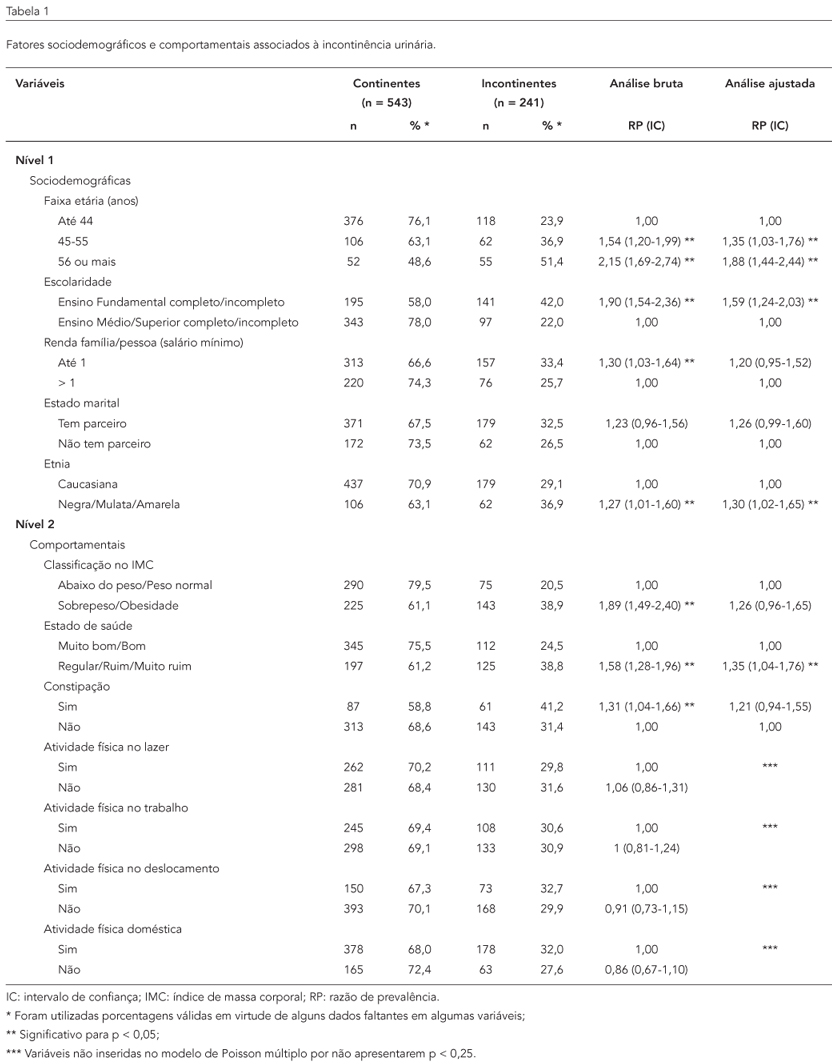This cross-sectional study aimed to investigate the association between socio-demographic and behavioral factors and the presence of self-reported urinary incontinence in 784 women undergoing cervical cancer screening in Greater Florianópolis, Santa Catarina State, Brazil. Socio-demographic data, health status, physical activity, constipation, and body mass index were obtained, and the International Consultation on Incontinence Questionnaire-SF was used. Prevalence of urinary incontinence was 30.7% (16.5% reported leakage once a week or less and 23.8% losses in small volumes). Poisson univariate regression showed the following factors associated with urinary incontinence: lower education, lower income, non-white skin color, overweight, worse health status, constipation, and older age. After adjustment, according to a hierarchical model, schooling, ethnicity, health status, and age remained significantly associated. The high prevalence of urinary incontinence in women seeking Pap smear tests justifies preventive approaches in these areas of intervention.
Urinary Incontinence; Women's Health; Risk Factors; Mass Screening; Motor Activity


